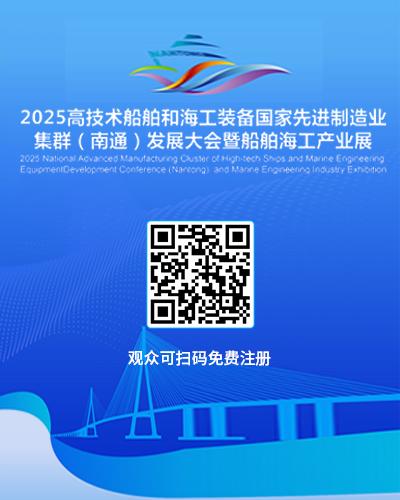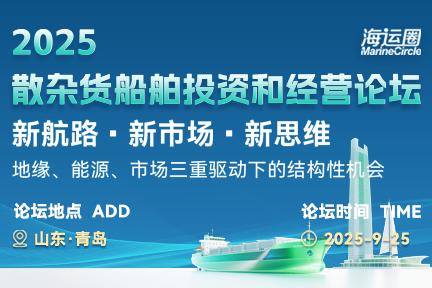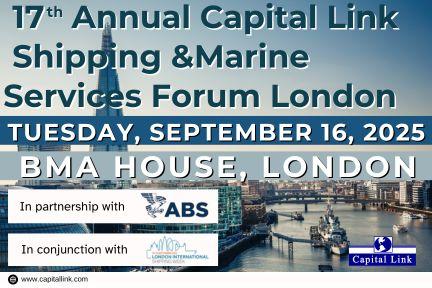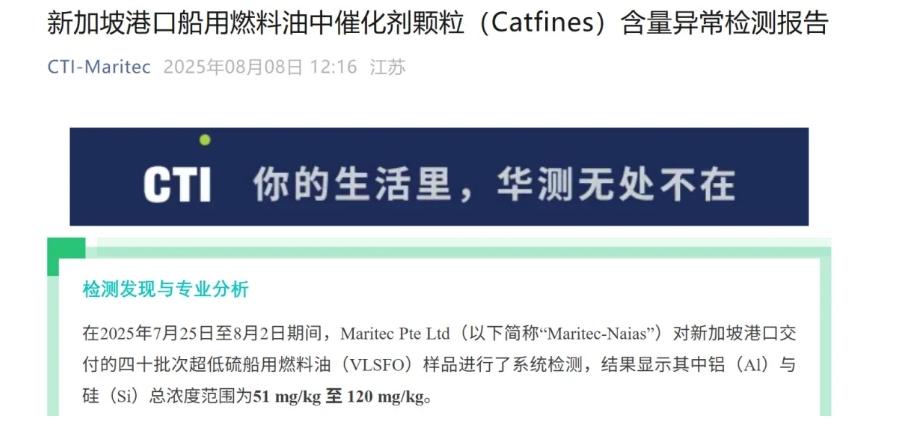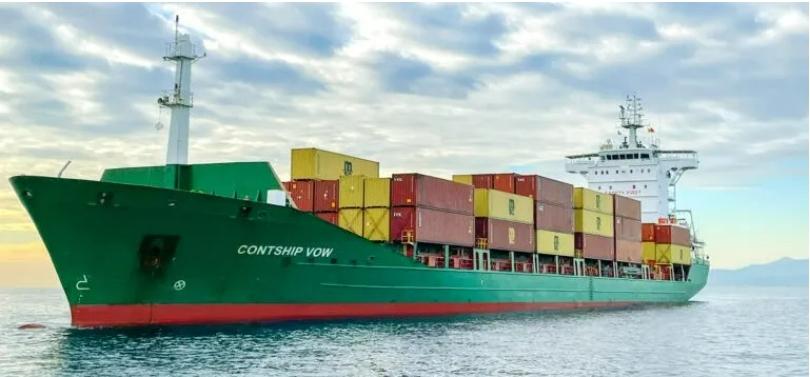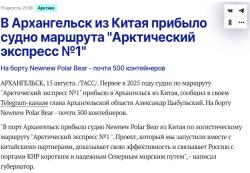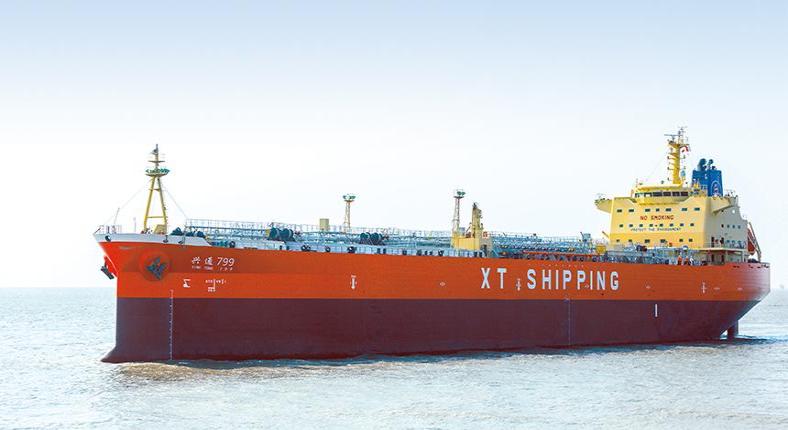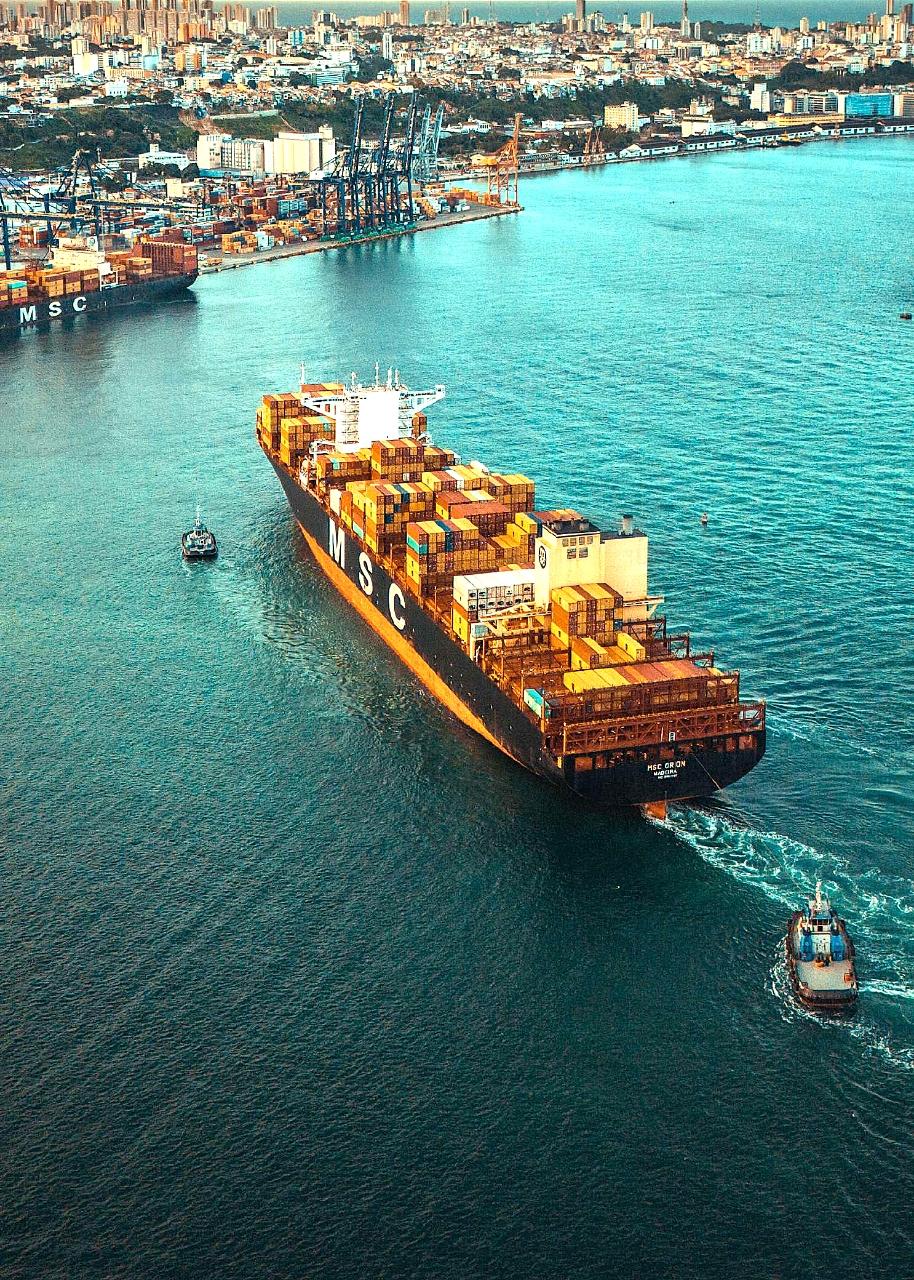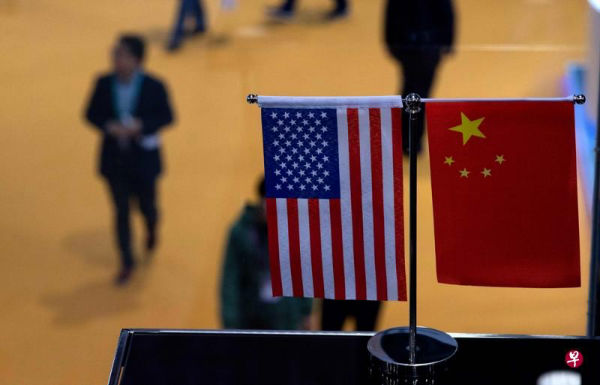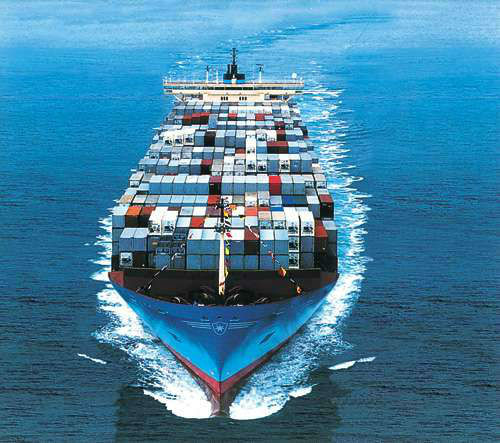
Charter-party(Voyage) - Demurrage - Notice of readiness - Delay in vessel
gettinginto berth –Whether NOR is premature- Whether laytime commenced 12/24 hoursafter notice given –Whether charterers could rely on Force Majeure-Whetherowners entitled to demurrage.
The owners m/s J let their vessel CS to the charterers m/s C and m/s C sublet the vessel to Charterers m/s B of charter-party dated May 8, 2017, all terms and conditionsare basis back to back.
The charterpartyprovided that the vessel was to proceed from 1/2 safe berth(s) HayPoint/Dalrymple Bay/ Abbot Point, East coast of Australia to 1/2 safe berth(s) Qingdao or additional 1/2 safe berth(s) / safe port(s)/ safe anchorage (s) as specifiedin China,laycan start from May 24, 2017, loadingrate 50,000 metrictons at load port and 20,000metric tons at discharge port Sundays and holidaysincluded, and that the rate of demurrage was usd15,000 per day. Thecharter further provided inter alia:
11. Tendering of Notice of Readiness at Load Port(s)
Notice ofReadiness (NOR) at each load port shall be tendered in writing by facsimile,email or courier, to Charterer and/ or Charterer‘s nominated agent (if any) only as per Box 18 after the Vessel hasarrived, having made fast at berth or anchored, and is in all respects readyand in free pratique (relevant contact details to be provided on fixture). If the loading berth oranchorage is unavailable when the Vesselreaches the load port due to the berth or anchorage being occupied by anothervessel, the Vessel may tender its NOR from the normal recognised waiting placedesignated by the Port Authority, even if outside the normal port limits andwhether or not the Vessel has been cleared by customs and/or quarantineauthorities. At load port(s), Owner/Master shall not tender, nor isCharterer or its nominated agent obliged to accept, Vessel’s NOR prior tocommencement of laycan, unless otherwise previously agreed. Charterer's and/or Charterer’snominated agent’s acceptance of the NOR before the commencement of laycan iswithout prejudice to Charterer's rights in respect of the NOR so tendered andshall not be construed as a waiver of any rights.
Time for loading shall count (allowing for anynotice/turn time agreed as per Box 16) as stated in Box 13 after NOR has been tendered and accepted by Charterer. In theevent that Charterer or Shipper can arrange to load before time commences tocount, Master shall allow work to be done, in which case half actual time usedto count.
12.Tendering Notice of Readiness at Discharging Port(s)
Notice of Readiness (NOR) at eachdischarge port shall be tendered in writing by facsimile, email or courier, toCharterer and/or Charterer’s nominated agent (if any) only as per Box 19 after the Vessel hasarrived, having made fast at the berth or anchored, and is in all respectsready and in free pratique (relevant contact details to be provided onfixture). If the discharging berth or anchorage is unavailable when the Vessel reaches the discharge port due to the berthor anchorage being occupied by another vessel, the Vessel may tender NOR fromthe normal recognised waiting place designated by the Port Authority,even if outside the normal port limits and whether or not the Vessel has been cleared by customs and/or quarantineauthorities.
Charterer'sand/or Charterer’s nominated agent’s acceptance of NOR at the discharging portis without prejudice to Charterer'srights in respect of the NOR so tendered and shall not be construed as a waiverof any rights.
Timefor discharging shall count (allowing for any notice/turn time agreed as per Box 17) as statedin Box 15 after NOR has been tendered andaccepted by Charterer. In the event that Charterer or Receiver can arrange to discharge before timecommences to count, Master shall allow work to be done, in which case halfactual time used shall count.
36.Force Majeure
Withoutprejudice to any party's rights under the Ice Clause, Owner shall not be liableto Charterer, nor will Charterer be liable to Owner, whether in demurrage or inany other respect whatsoever, for any failure or delay in the performance ofobligations under this Contract, and any such delay shall neither count aslaytime nor as demurrage, if such failure or delay is due to or results fromthe following: act of war or the threat or anticipated imminence thereof;restraints of rulers, governments, or people; act or threat of terrorism;legislation, decrees, orders, regulations or the like in the country of origin or of Vessel’s flag; unrest ordisturbance, sabotage, blockade, sanctions, civil commotion, politicaldisturbances, breakdowns, power failure, accidents, or stoppages whether totalor partial, at ports, on railways, or other means of transport to or from theports; epidemics; disease; quarantine; Act of God; weather (including but notlimited to drought, fog, frosts, floods, snow, storms, tidal wave, tsunami,tempest or washaways); any other event or occurrence of any nature or kind whatsoever beyond the reasonable control of Owner and/orCharterer, whether similar or dissimilar to the causes or circumstances mentioned above. A party affected by Force Majeure may not rely on Force Majeure if the reason it is unable to perform iscaused by a failure of any person to discharge a contractual or otherobligation in favour of the affected party, other than by reason of ForceMajeure.
Chartererwill not be liable to Owner, whether in demurrage or in any other respectwhatsoever, for any failure or delay in the performance of obligations underthis Contract and time shall neither count as laytime nor as time on Demurrage if such failure or delay is due toany of the aforementioned events stated within this clause.
The party whose performance of any obligation is affected, or who has reason tobelieve such performance may be affected, by reason of any of the events referred to above shall,as promptly as possible, give written notice thereof to the other party concerned, and shall as promptly as possible thereafter notify the other partyconcerned,in writing, of particulars of the relevant event and supply supporting evidence.
The vessel crossedloading port limit on May 23, 2017 at 1230 hours local time, NOR was tenderedbasis same time and then she proceeded to designed anchorage and drop anchor at1348 hours local time. The vessel was unable to proceed to her loading bertheither then or at the expiry of the 12 hours turning time since No.3 berth wasoccupied by other vessels. The vessel remain at anchorage until Jun 14, 2017,The vessel got along side and commenced loading at the same day and completedon Jun 16, 2017.
The vessel arrived her destination Qingdao and drop anchoredon Jul 2, 2017 to wait for entry instruction, NOR was tendered at the sametime. The designed berth is free for the vessel by then. The vessel remain atanchorage until Jul 5 by reason of channel was closed due to dense fog, Thevessel berthed on Jul 5 and completed discharge her cargo on Jul 9, 2017.
After completed the voyage, the Owners Jclaimed demurrage about 290,000usd for load port and despatch about usd21,000for discharge port.
The charterers C contended that since theywere protected by the special sentence of clause 36, were not responsible forport congestion nor was it in any way within their control, and furthercontended that both NOR were invalid under this berth charterparty, it’spremature one , NOR was tendered underway at load port and berth was free whenthe vessel tendered NOR at discharge port.
The Owners J accepted NOR was invalid atdischarge port, confirmed despatch about usd35,000 at discharge port. Butmaintained NOR was valid and claimed total about usd350,000 together withbalance freight.
Until now, parties could not reachagreement and the main dispute at load port will be referred to arbitration.
On the facts were found and on the trueconstruction of the charterparty, before this action, Writer for and on behalfof charterers C wish to clarify as a matter of law, whether (a) NOR is invalidat load port, and (b) Charterers C is discharged his demurrage obligation.
---------------------------------------------------------------------
The following cases were referred to inthis discussion.
1. E. L.Oldendorff & Co. G.m.b.H v. Tradax Export S.A. (The "Johana Oldendorff") [1973] 2 Lloyd’s Rep.285
2. London Arbitration 16/05 (2005) 672 LMLN 3
3. AET IncLtd v. Arcadia Petroleum Ltd (The "Eagle
4. Galaxy Energy International Ltd. V. NovorossiyskShipping Co (The "Petr Schmidt ") [1998] 2 Lloyd’s Rep.1
5. The “Radauti”[1987] 2 Lloyd’s Rep 276
6. Kassiopi MaritimeCo Ltd v. Fal Shipping Co Ltd (The “Adventure”)[2015] EWHC 318 (Comm)
7. WaterfrontShipping Company Ltd v Trafigura AG (The “Sabrewing” )[2007] EWHC 2482 (Comm)
8. BarrettBros. (Taxis) Ltd. v. Davies, [1966] 2 Lloyd's Rep. 1
9. The “Mozart” [1985] 1 Lloyd's Rep. 239
10. Glencore Grain Ltd. v. Flacker Shipping Ltd. (The “HappyDay”) [2002] EWCA Civ 1068
11. Glencore Grain Ltd. v. Goldbeam Shipping Inc. (The “MassGlory”)[2002] EWHC 27
12. General Construction Limited v. Chue Wing& Co Ltd and another [2013] UKPC 30
13. Arnoldv Britton & Ors [2015] UKSC 36 (10 June 2015)
14. Wood v Capita Insurance Services Ltd [2017]UKSC 24
15. Rainy Sky SA & Orsd v Kookmin Bank [2011]UKSC 50
16. Western Bulk Carriers KS v Li Hai Maritime Inc(The“Li Hai”) [2005] EWHC 735
17. Nereide S.p.A Di Navigazione v. Bulk OilInternational Ltd. ( The “Laura Prima” [1982] 1 Lloyd’s Rep.1
18. Aldebran Compania Maritima S.A. v.Aussenhandel A.G. ( The “Darrah”) [1976] 2 Lloyd’s Rep 359
19. Federal Commerce v. Tradax Export (TheMaratha Envoy) [1978] A.C. 1
---------------------------------------------------------------------
As Lord Diplock said in the House ofLords case The “Darrah” at page 362, The type of maritime adventure that is thesubject of a voyage charter is exposed to risk of delay in its performance fromcauses that are beyond the control of both shipowner and charterer. Under avoyage charter time is money; so it is of commercial importance to the partiesto provide by their contract how any loss occasioned by delay due to suchcauses is to be allocated between them. Among the commonest causes of delay,particularly in recent years, has been congestion at ports. Vessels have towait their turn, within or without the limits of the port, until there is avacant berth at which their cargo can be loaded or discharged.
The standard form of this voyage charterpartyfrom Charterers B, Clause 11 which stipulated as below, almost the same as clause12:
Noticeof Readiness (NOR) at each load port shall be tendered in writing by facsimile,email or courier, to Charterer and/ or Charterer‘s nominated agent (if any)only as per Box 18 after the Vessel has arrived, having made fast at berth or anchored, and is inall respects ready and in free pratique (relevant contact details to beprovided on fixture). If the loading berth or anchorage is unavailable when the Vessel reaches the load port due to the berth or anchorage being occupied by another vessel, the Vessel may tender its NOR from the normalrecognised waiting place designated by the Port Authority, even if outside the normal port limits and whether or not the Vessel has been cleared by customs and/or quarantine authorities.
This clause contains such expressprovision, NOR only could be tendered at normal recognized waiting place if theberth was occupied. Otherwise the vessel should tendered at berth when made allfast. The essential characteristics of the contract embodied in this voyage charter,be berth charter. The risk and loss for the vessel has been compelled to waitfor a berth to become available is fall on Owners’ side.
At discharge port, The berth was freewhen the vessel tendered the NOR, Owners conceded the NOR was invalid underthis berth charterparty, there is no further dispute for laytime calculation atdischarge port, which could be set aside.
The remain issue is whether NOR is invalidat load port and whether the charterers is discharged his demurrage obligation.I will discuss all reasons one by one as following.
1、 Whether1st NOR was invalid
It’s well established that the vessel must be an arrived ship, must not only be
physically ready to load ordischarge, as required when the notice of readiness is given, but also legallyready. The notice must be a notice of actual, not anticipated readiness, is infact ready to load or discharge at the time when it’s given.
As Lord Reid said in his judgement in The“Johanna Oldendorff” [1973] 2 Lloyd’s Rep 285 at page 291, and in particularthe following passages:
“On the whole matter I think that it ought to be made clear that the essential factoris that before a ship can be treated as an arrived ship she must be within theport and at the immediate and effective disposition of the charterer and thather geographical position is of secondary importance. But for practicalpurposes it is so much easier to establish that, if the ship is at a usualwaiting place within the port, it can generally be presumed that she is therefully at the charterer's disposal.
I would therefore state what I would hope to be thetrue legal position in this way. Before a ship can said to have arrived at aport she must, if she cannot proceed immediately to a berth, have reached aposition within the port where she is at the immediate and effectivedisposition of the charterer. If she is at a place where waiting ships usuallylie, she will be in such a position unless in some extraordinary circumstancesproof of which would lie in the charterer.
If the shipis waiting at some other place in the port then it will be for the owner toprove that she is as fully at the disposition of the charterer as she wouldhave been if in the vicinity of the berth for loading or discharge. ”
Before the ship couldbe treated as one arrived ship, She must be within the port and at theimmediate and effective disposition of the charterer. Refer to《Voyage Charter》Chapter15-Laytime
Consequently,the general law applies and she must be at the immediate and effective disposition of the charterer, having come to rest at the place at which she can be described as an“arrived ship”.
The adventure contemplated by a voyage charter involves four successive stages. As Lord Diplock said in the same case at page 304, They are:
(1) The loading voyage, viz.the voyage of the chartered vessel from wherever she is at the date of thecharter-party to the place specified in it as the place of loading.
(2) The loading operation viz.the delivery of the cargo to the vessel at the place of loading and its stowageon board.
(3) The carrying voyage, viz.the voyage of the vessel to the place specified in the charter-party as theplace of delivery.
(4) The discharging operation,viz. the delivery of the cargo from the vessel at the place specified in thecharter-party as the place of discharge and its receipt there by the charterer or other consignee.
In all four of these stages acts of performance by the shipowner are called for; in the two voyage stagesacts of performance by him alone. The actual words in the charter-party which impose on him the obligation to perform them do not differ significantly in any of the standard forms of voyage charter-party.
These four stages cannot be any gap between thestages, not is there any overlap. The vessel only could tender NOR when she complete loading voyage or carrying voyage, as the case maybe. In CS case,should complete her loading voyage, come to rest at the anchorage.
Refer to vessel’s track recordas below, the Master of CS when he tender NOR at 1230hours local time on May23, the vessel is still underway.

Refer to SOF as below, showing that at1230 hours arrived at port limits, and anchored at 1348 hours. From 1230 hoursto 1348, The vessel was shifting to anchorage. The vessel not yet come to restwhen tender NOR. It’s no doubt that this NOR was premature one, therefore is invalid.
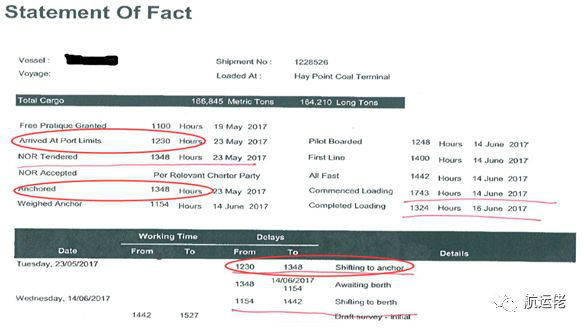
The House of Lords held in Federal Commerce v. TradaxExport ,The “Maratha Envoy” case, the notice of readiness was not validly tendered. The vessel had not come to rest when it was given and the place whereshe did come to rest was not within the port.
Also in London Arbitration 16/05 (2005) 672 LMLN 3 case,The Judge held that the NOR tendered when the vessel end of sea passage is invalid.
2、Whether 2nd NOR was invalid
The Owners rely on 2nd NOR which was just with remark “The Notice of Readiness re-tendered at 0001 hours localtime on the 24-May-2017, Without Prejudice to validness of previous NOR tendered.” too much; they submitted that even if 1st NOR was invalid, the 2nd NOR was valid.
Refer to 《Voyage Charter》-Chapter 15-15.31 and 15.33 as below:
15.31The form and contents of the notice of readiness depend upon the terms of the charter; but in the absence of more specific requirements it should state (1)that the vessel has arrived at the place where, under the terms of the charter, she may tender notice, and (2) that she is ready to load or discharge.
15.33:Since the Gencon charter contains no specific requirements as the contents of notice of readiness, the conditionswhich must be fulfilled before the notice is given are those implied under thegeneral law, namely that the vessel should have reached the appropriate place, and that she should be able to load or discharge.
It’s clear that the contents of NOR shouldcontains (1) has arrived at the place, and (2) ready to load.
Lord Longmore said in his judgement in the “Eagle
Consideration the statement in 2nd NOR is not accurate instating the vessel is so ready-not yet come to rest, not yet reached the appropriate place-anchorage, Thus the 2nd NOR under the general law, the conditions were not fulfilled.
For this, I shall refer to Lord Evan said in his judgement in the “Petr Schimidt” case at page 4:
It is clearly established that a notice which contains these statements but which is inaccurate-the statements are incorrect-is invalid and is a nullity so far as the contract is concerned. Moreover, if the statements were inaccurate when they were made, the notice does not become valid and effective merely because the relevant factor change-if, for example, the vessel thereafter becomes an arrived ship, or becomes ready to load or discharge, which it was not.
Even the CS become an arrived ship, but the statements were still inaccurate when 2nd NOR was tendered, Thus this NOR is invalid.
The 2nd NOR only could be valid after amend wordings as below and tender not prior laycan.
Please be advised that M/V C has arrived and drop anchor at the port of Hay Point at 1348 hours local time on 23-May-2017 and now she is ready in all respects to commence loading her cargo in accordance with the terms and conditions of the Charter Party.
The Notice of Readiness re-tendered at 0001 hours local time on the24-May-2017, Without Prejudice to validness of previous NOR tendered.
3、 Whether 2nd NOR was premature
Charterers wish to ascertain the time of tendering 2nd NOR, Butthe Owners refuse to provide deck logand engine log despite of clause 5 provided as below, clear stipulate that theOwners should furnish Charterers when required.
The Master shall keep full and correct deck and engine logs of the voyage in the English language, which are to be patent to Charterer or its agents, and shall furnish Charterer, its agents or supercargo, when required, with a true copy of such deck and engine logs, showing the course of the Vessel, distance run and the consumptionof bunkers.
Refer below screen shots which from the Owners, showing that 2nd NOR was tendered at 22:02 hours on May 23, 2017.

But refer to clause 11, At load port(s), Owner/Master shall not tender, nor is Charterer or its nominated agent obliged to accept, Vessel’s NOR prior to commencement of laycan, unless otherwise previously agreed. Charterer's and/or Charterer’s nominated agent’s acceptance of the NOR before the commencement of laycan is without prejudice to Charterer's rights in respect of the NOR so tendered and shall not be construed as a waiver of any rights.
The master shall not tender NOR prior to commencement of laycan ( May 24, 2017 ), Thus 2nd NOR was still premature.
The Owners may contend that time zone is +10 in Haypoint, but if consideration Daylight Saving Time in May, time zone +9 should beapplied. May further contend as Lord Evens his judgement in the “Petr Schimidt”case, held that NOR which was tendered outside office hours was a valid NOR. But in that case, The NOR was tendered within the laycan.
This submission should be reserved.
4、Provide signed NOR
Clause 6 which provided:
Owner shall provide Charterer with its calculations of demurrage or despatch, time sheets, Statement of Facts and signed Notices of Readiness within [15] days after departure from the final loadport or disport.
But the 1st NOR as the Owners provided was not signed NOR.
In The “Sabrewing” [2007] EWHC 2482(Comm) case, the charterparty provided that(a) an hourly pumping log, signed by a responsible officer of the Vessel and a terminal or Charterers' representative, showing the pressure maintained at the manifold throughout discharge and, in the absence of a signature from a terminal or Charterers' representative, a Note of Protest.
Justice Gloster in her judgement at paragraph 27 said,
I reject Owners' argument in relation to the application of the de minimis principle to excuse their non-compliance with the obligationto provide pumping logs signed by Owners. In my judgment, there is a real commercial purpose and importance in requiring a signed pumping log to supporta claim in these circumstances for additional pumping time in excess of 24hours, i.e. to prove that they had maintained the required average pressure throughout the discharge and that the fault lay with the terminal. The signature of a responsible officer of the Vessel was obviously important to show that such a person was prepared to put his name to the document to confirmits accuracy, to authenticate it and to prove its provenance.
The same arguments would also apply, to the signatures of either a charterer's representative or a terminal representative (or in theirabsence, relevant notices of protest), on the assumption, for present purposesthat the futility principle does not apply. I do not consider that the absence of any of these signatures was trifling or insignificant. I also take the viewthat, other than in very special circumstances (which do not exist here), thede minimis principle should not be applied to a document that (as I have held)is expressly required to be produced by the contract and is plainly relevant.
The NOR and SOF were essential documents for laytime calculation, Hence that the Owners must provide signed NOR, enable the charterers to ascertain NOR validly to support Owners’ claim for demurrage.
5、 Agent
The lawyer for and on behalf of Owners said in their submission at 6.2:
According to the SOF at Hay Point [5/16]signed by Wilhemsen as, inter alia, agent for the Respondent the NOR..
But refer to clause 30, which reads:
Both the load port and discharge port agents shall be appointed by Owner as Owner’s agents and Owner shall pay all fees and expenses charged by those agents.
The agent shall be appointed by Owners as Owners’ agent. The agent has never copied any email to Charterers, so that the agent can only be treated as acting for Owners, whatsoever they have done is not binding on charterers.
Furthermore, Clause 11 & 12 which provides:
Charterer's and/or Charterer’s nominated agent’s acceptance of the NOR before the commencement of laycan is without prejudice to Charterer's rights in respect ofthe NOR so tendered and shall not be construed as a waiver of any rights.
It’s plain to read those wording, even thought agent accept the NOR, still shall not be construed as a waiver of any charterers’ rights.
6、 Port congestion
Owners and their lawyer ever contended that the charterers aware the port was congested and in line-up showing so many vessels waiting at anchorage, So the Charterers could not rely Force Majeure clause, the risk of port congest was fall on charterers.
But in The “Radauti” [1987] 2 Lloyd’s Rep 276 case, at paragraph 20 Arbitrators found the vessel was kept waiting for berth at Tripoli roads for a long period, the port had suffered from congestion for a number of years,
20. It waswell known to those engaged in international shipping business at the time that Tripoli had suffered from congestion for a number of years. The vessel was carrying a cargo of wheat flour, the type of cargo which is normally given priority for discharge inpreference to vessels not carrying foodstuffs or other essential cargo.Nevertheless, the vessel was kept waiting for a berth at Tripoli Roads for a long period.
In that case, the Force Majeure clause including below wording:
…any other causes or hindrances happening without the fault of the charterers…
Justice Staughton in his view the “hindrances ” also include port congestion, finally held therewas no lack of natural justice or fairness, no misconduct and no procedural mishap. The owners' motion fails.
7、 Force Majeureclause
As Justice Staughton said in judgement of the “Radauti” [1987] 2 Lloyd’s Rep 276 case ,The well-knownCentrocon strike clause provides an exception if the cargo cannot be loaded by reason of: Obstructions or stoppages beyond the control of the charterers onthe railways or in docks or other loading places.
Force Majeure clause of this charterparty as clause 36 which was mentioned above, specially insert below wording:
Any other event or occurrence of any nature or kind whatsoever beyond beyond reasonable control of Owners and / or Chartrerers, whether similar or dissimilar to the capital or else mentioned above ...
Owners and their lawyer contended that the charterers could not rely this sentence to relieve charterers’ obligation, and further contended that port congestion was not within the meaning of this clause.
In this regard, We may refer to 《Laytime and Demurrage》Charter 4- Interruptions andexceptions to laytime (7th Edition, 2016, John Schofield), which will tend to favor the term "whatever" or something similar if the final exclusionary term In excluding similar principles, the last word is often givena broad meaning, even though the previous exception is the same type or attribute.
4.119 Before considering the ceases where this point has arisen, it may be helpful tosummarize the principles that have occurred:
C.If the final words of exclusion include the word "whatsoever", or something similar,then this will tend to exclude the ejusdem generis rule and even if theprevious exceptions are the same type or genus, the final words will still normally be given a wide meaning.
In Larsen v Sylvester &Co, given that there is anyother unavoidable accidents or hindrances of what kind soever beyond their control, the judge's tenant does not need to be held responsible for thecongestion of the port, thereby relieving the charterer of liability withoutpaying demurrage .
bb) Cases relating toprinciple C
4.140 The leading case on this point is Larsen v Sylvester & Co, a decision of the House of Lords. There the clause in question read:
The parties hereto mutually exempt each other from all liability arising from frosts, floods, strikes,lock-outs of workmen, disputes between master and men, and any other unavoidable accidents or hindrances of what kind soever beyond their control,preventing or delaying the working , loading, or shipping of the said cargo occurring on or after the date of this charter until the actual completion ofthe loading.
The Mauranger, the vessel concerned, arrived in dock in Grimsby to load a cargo of coal, but was delayed thereafter by congestion. The higher courts agreed that the ejusdem generis principle did not apply and the delay was excluded. Speaking of the ejusdem rule, Lord Robertson said:
...the parties, I think, have realized, or, at least, may well be held to haverealized, the applicability of that rule to such contracts, and they inserted inserted words "of what kind soever", simply for the purpose of excluding that rule of construction. The effect of the insertion of these words is this, it excludes the limitation that would that arise arise from the context and gives to the word "hindrances" its full and absolute meaning.
In the case of Fenwick &Co Ltd v Phillp Spackman & Sons, the judge's tenant did not need to be responsible for the delay because the lease contained the words or any accidentor any cause whatsoever beyond the control of the charterer.
cc) 4.141 This decision of the House of Lords was followed in France, Fenwick & Co Ltd v Phillp Spackman& Sons by Bailhache J. In this case, the clause provided:
Strikes of workmen, lock-outs, pay days, idle days or caviling days, or riots or frost,rain or floods, or any accident or any cause whatsoever beyond the control of the charterer which may prevent or delay her loading or unloading excepted.
The vessel was delayed by shortage of railway wagons at the discharging port, due to an abnormal demand for these at the time. The reason for that abnormal demand was said by BaihacheJ to be as follows:
It is sufficient for me torefer to Larsen v Sylvester and Thorman v Dowgate Steamship Co. In the formerof these cases the general words were "of what kind soever", and the Horse of Lords held that by the use of those words there was a sufficient expression of intention to exclude the ejusdem generis rule. In Thorman v Dowgate Steamship Co, the general words were "any other cause", andHamilton J decided there was no sufficient indication to override the well-known ejusdem generis rule. But in this case, the words were sufficient to exclude the rule
Can also refer to thefollowing:
dd) In the Mozart case, clause 3 which provided:
... or any cause whatsoever beyond the control of the charterer ...
Mustill J considered this question in two parts, the first being whether the words should be given aliteral meaning and, secondly, if so, whether what happened beyond beyond thecontrol of the charterers.
On the first point, he said: If the clause is advertised widely, it must be applied widely.
He therefore held, withoutciting either of the previous cases, or indeed any any authority, in favor of aliteral meaning, thus excluding the ejusdem generis rule. On the second issuehe held that the charterers were not vicariously liable for TOPCO's failure tomaintain the stacker-reclaimer, since the charterers, via their agents, were inan arm's length relationship with the terminal.
ee) In the Masyogiorgis Bcase, The US Court of Appeals held that time lost as a result of congestion,itself resulting from a strike, came within the protection of the phrase" beyond the charterers '/ receivers' control" in a clause said to be drafted in the broadest possible language.
Owners or their lawyer may contended that the cases , such as The “Radauti” case will be not binding on them , the above are quoted from leading text 《Laytime and Demurrage》, 7th edition, 2016. If the owner may argue John Schofield was wrong, then they should look for the opposite cases, or the authoritative book of the opposite argument to support their defense, such as the leading judgement from House of Lords in recent years.
8、 Owners’fault
Ownersever instructed their Master wrongly to tender NOR when vessel crossing port limit, and the Masterfollow this illegal instruction. Pursuant to clause 11, NOR should be tendered after arrived at anchorage.
The principle is well established thatone can not profit from one's own mistakes. As Lord Diplock said in The"Hong Kong Fir" case, and《Shipping Law》:
A man should not be allowed to take advantage of his own wrong.
And 《Contract Law》:
This is only a specific application ofthe fundamental legal and moral rule that a man should not be allowed to take advantage of his own wrong.
And 《Chitty on Contracts》:
As a matter of interpretation it is not the intent of the parties to conclude that there is no clear contradiction to the contrary, relying on a breach of contract to avoid the contract or tobenefit under the contract.
As a matter of construction, in the absence of clear express provisions to the contrary it will be presumed it wasnot the intention of the parties that either should be entitled to rely on hisown breach of the contract to avoid the contract or obtain a benefit under it.
Thus, the Owners were the authors, for the purposes of tendering NOR earlier enable to commence laytime calculation, that was the responsibility for the Owners themselves. The Owner must not be entitled to take advantage of his own wrong.
9、 Timebar
As mentioned earlier in the article on the interpretation of the limitation clause, the shipowner must provide an accurate and complete files to support their claims, especially SOF&NOR.In The " Sabrewing" case , no pumping log was provided;In the" Adventure" case, all documents were not provided, and the Ownerclaim demurrage fail. In The "Eagle Valencia" case, the court adopted the principle of strict interpretation, held that NOR is a necessary document for demurrage claim.
Having said that the agent acts as the agent of the shipowner, any change made by the agent of the shipowner with respect to the content of the NOR can only be interpreted as thebehavior of the owner, not the charterers. The shipowner in this CS case, didnot provide the signed NOR signed.
Upon receipt of the load port NOR providedby the shipowner, We duly found that the captain had tendered NOR while his vessel crossing the port limit, in doubt the validity of this NOR. And sent an email to the owner on Sep 14, together with the corrected laytime calculation, requirethe owner to confirm, but the owner remained silent, no any feedback from Owners’ side.
Refer to clause 6 which provided as below:
Owner shall respondin writing to any communications from Charterer disputing Owner’s calculations of demurrageor dispatch within [10] Singapore working days of receipt by Owner, failing which Owner shall be deemedto have accepted and agreed with Charterer’s objections to Owner’scalculations.
In view of the silence of the owners, the charterer sent an email as below on Sep 28 stating that the owners' actions constituted a waiver.
Consideration above, Charterers have to declare that this NOR is invalid. Charterers duly revise their laytime calculations for Owners’ persual on 14th/Sep at 0939hrs as attached message.
Now, Purusant to clause 6, which provides:
Owner shall respond in writing to any communications from Charterer disputing Owner’s calculations of demurrage or dispatch within [10] Singapore working days of receipt by Owner, failing which Owner shall be deemed to have accepted and agreed with Charterer’s objections to Owner’s calculations.
Charterers still not yet receive Owners’response in writing by now, It’s common ground that already 14 days elapsed including 10
Therefore shall be deemed the Owners have accepted and agreed with Charterers’ calculation. Owners have waived their rights, And this file now is closed finally.
For the definition ofany, may refer to《Black’s Law Dictionary》:
And the words "any other" followingthe enumeration of particular classes are to be read as "other such like," andinclude only others of like kind or character.
And
One indiscriminately of whatever kind or quantity
As Justice Hirst cite Lord Hailsham in the House of Lords in the “Li Hai ” case at paragraph 76, “You haven't paid up when you should have done: pay in 48 hours or lose the ship". Time bar clause is so serious a matter for the Owners that it is the duty of the Owners to comply with strictly, as there is express provision, once Owners failure to reply, shall be deemed to have accepted and agreed with charterers’ objections to Owners’ calculations. These wordings are so clear and unambiguous.
Basis this, Owners have waived their rights. The demurrage claim wastime barred.
10、Necessity of giving notice
The Force Majeure clause of this charterparty, require the party to give written notice, which reads as below:
The party whose performance of any obligation isaffected, or who has reason to believe such performance may be affected, by reason of any of the events referred to above shall, as promptly as possible, give written noticethereof to the other party concerned, and shall as promptly as possible thereafter notify the other party concerned,in writing, of particulars of the relevant event and supply supportingevidence.
If may the Owners contended the necessity of giving notice, but in Barrett Bros. (Taxis) Ltd. v. Davies, [1966] 2Lloyd's Rep. 1 case, there are conditions as below
Condition 1 said:
The Insured shall give full particulars in writing to MILESTONEMOTOR POLICIES, LONDON HOUSE . . . as soon as possible after the occurrence of any accident, loss or damageand shall forward immediately any letter, Notice of intended prosecution, writ,summons or process relating thereto. . . .
Condition 13 said:
The due observanceand fulfilments of the terms, provisions, conditions and endorsements of thisPolicy in so far as they can apply and the truth of the statements and answersin the proposal form shall be conditions precedent to any liability of theUnderwriters to make any payment under this Policy.
But in Lord Denning his leading judgement at page 5, Lord Denning heldthat:
I am afraid I take adifferent view from the County Court Judge, and for two reasons: First, it wasunnecessary for the motor cyclist to send the documents to the insurers. They had all the relevant facts, and that absolvedthe motor cyclist from doing more. The Police Headquarters at Blackpool by their letter of June 18, 1964, gave to theinsurers all the material information. The insurers would be entitled, if theyso wished, to send their own representative to the Magistrates' Court and watchthe proceedings, or, indeed, take such other steps, if any, as they wereentitled to take. Seeing that they had received the information from thepolice, it would be a futile thing to require the motor cyclist himself to givethem the selfsame information. The lawnever compels a person to do that which is useless and unnecessary.
Apart from these twopoints, I would put the matter more broadly. This Condition 1 was inserted inthe policy so as to afford a protection to the insurers so that they shouldknow in good time about the accident and any proceedings consequent onit. If they obtain all the materialknowledge from another source so that they are not prejudiced at all by thefailure of the insured himself to tell them, then they cannot rely on thecondition to defeat the claim.
Lord Denning allow the appeal and held the motor cyclist could recover the cost from the insurers with whom he had insured.
The “ Mozart” case, [1985] 1Lloyd's Rep. 239, In this case, concerned clause provided asbelow:
[25] 3. The cargo tobe loaded into Vessel at the rate of see Clause 22 per running day, oftwenty-four hours consecutive commencing weather permitting 24 hours afterVesseltenders and is ready to load, unless sooner commenced whereupon time isto commence but only time actually used to count and written notice isgiven of the Vessel's being completely discharged of inward cargo and ready toload, such notice to be given at any time day/night Shinc .Any time lost through riots, strikes, lockouts, or any dispute between masters and men,occasioning a stoppage of pitmen trimmers or other hands connected with theworking or delivery of the petcoke for which the Vessel is stemmed, or by reason of accidents to mines or machinery obstructions, embargo or delayon the Railway or in the Dock; or by reason of fire, floods, frosts, fogs,storms or any cause whatsoever beyond the control of the Charterer affecting mining, transportation, deliveryand/or loading of the petcoke not to be computed as part of the loading time(unless any cargo be actually loaded during such time). In the event of anystoppage or stoppages arising from any of these causes continuingfor the period of six running days from the time of the Vessel's beingready to load, this Charter shall become null and void; provided, however, thatno cargo shall have been shipped on board the Vessel previous to such stoppageor stoppages. In case of holiday, or partial stoppage of Colliery, Collieriesor Railway from any or either of the aforementioned cases, the laydays tobe extended proportionately to the diminution of output arising from suchpartial holiday or stoppage. If longer detained, Charterer to pay US$18.000 -
In this case ther equirement to give a due notice could not be sensibly understood as requiring the charterers to notify the master of something which by combining his own observations with information conveyed to him by the people on the spot he knewperfectly well already.
Since the master had received all the information which would have been contained in a notice, Eventhough the charterers fail to give any notice, Mustill J said at page245, held that in the particular circumstances of this case, the absence of anotice did not preclude the charterers from relying on the exception; the charterers are entitled to reply on the exception contained in clause 3 todefeat the claim for demurrage, the appeal would be allowed.
Review the exchange between parties, Ownersever sent below email:
As Charterers also know expressly that it is verycommon for vessels who call Hay Point, Aus to waiting for berth for many days…we found some line-up at HAY POINT before event, just same as theline up when the captioned vessel arrived…
Which may presumethat the Owners well awared the FM, port was congested and also get concernedline-up in their hand. Also agent must have kept the Owners updated berthing prospects.
Consideration the Owners already got all information ( including FM, port congestion, line-up etc),therefore it’s useless for charterersto service notice as per charterparty. This notice should be deemed as unnecessary.
Now follow thedecision of above mention two cases, We may also conclude that futility principle and estoppel maybe applied in CS case.
11、Interpretationof Contracts
As for the interpretation of the contract, from 2015 the judgment of the Supreme Court of England in Arnold v Britton and others case and the judgment of the Supreme Court of England in Wood v Capita Insurance Services Ltd case in 2017 returned to the text explanation, the judge paid attention to the lease in the specific wording, rather than commercial rationality and contractual background. As Lord Neuberger said in Arnoldv Britton and others case at paragraph 15:
Accordingly, when interpreting a contract a judge should avoid re-writing it in an attempt to assist an unwise party or to penalise anastute party..
In my judgment, there is no principle of interpretation which entitles a court to re-write a contractual provision simply because the factor which the parties catered for does not seem to be devloping in the wayin which the parties may well have expected.
And Lord Clarke in the “Rainy sky”case, saidat paragraph 23:
Where the parties have used unambiguous language, the court must apply it.
Lord Hoffmann said in The Antaios case:
This robust declaration does not, however, mean that onecan rewrite the language which the parties have used in order to make the contract conform to business common sense.
Lord Sumption in May 2017, there is speech of A Question of Taste: The Supreme Court andthe Interpretation of Contracts, inOxford, Harris Society AnnualLecture, He said:
The first and mainpoint to make is that the language of the parties’ agreement, read as a whole,is the only direct evidence of their intentions which is admissible. I wouldcertainly not advocate literalism as an approach to construction. But it is afallacy to say that language is meaningful only in relation to some particularbackground. Most language and all properly drafted language has an autonomousmeaning. I find the belittling of dictionaries and grammars as tools ofinterpretation to be rather extraordinary. Language is a mode of communication.Its efficacy depends on the acceptance of a number of conventions that enablepeople to understand each other. Dictionaries and grammars are simply referencebooks which record these conventions. If we abandon them as the basic tools ofconstruction, we are no longer discovering how the parties understood eachother. We are simply leaving judges to reconstruct an ideal contract which theparties might have been wiser to make, but never actually did.
It is I think time toreassert the primacy of language in the interpretation of contracts. It is truethat language is a flexible instrument. But let us not overstate itsflexibility. Language, properly used, should speak for itself and it usuallydoes. The more precise the words used and the more elaborate the drafting, theless likely it is that the surrounding circumstances will add anything useful.I do not therefore accept that the flexibility of language is a proper basisfor treating the surrounding circumstances as an independent source from whichto discover the parties’ objective intentions.
The recent history ofthe common law of contractual interpretation is one of continuity rather than change. One of the attractions of English law as a legal system of choice incommercial matters is its stability and continuity, particularly in contractual interpretation. As Lord Hodge said in Wood v.Capita case.
Under a berth charter the vessel does not complete the loading or the carrying voyage until the vessel reaches the designated berth. So any time spent waiting for the berth, such as at discharge port, just only to prolong the carrying voyages stage and in the absence of express provision to the contrary any loss occasioned to the Owners by reasonof the delay falls on him alone. And further in clause 36, there are expressprovisions, Charterers are entitled to relieve their obligation for demurrageresult from port congestion, it makes good sense commercially that,irrespective of whether it be a berth charter or a port charter, the Ownersshould insist to delete it, otherwise should assume the financial burden ofthat risk and loss for the additional time that his vessel has had to wait a tanchorage by themselves.
For all reasons I have endeavoured to giveas above, I would repeat for the determination of the incidence of financial loss, such as this case for demurrage must turn upon the true construction ofthe particular charterparty into which the parties have entered. It’s axiomatic that clauses in the charterparty must be construed as a whole, It’s impossible to ignore the opening words of clause 30, clause 6 and clause 36. In this CS special case, follow decisions of numerous cases, even though I maybe wrong finally, I still maintain that the Owners must fail their claim for demurrage by reasons of given above.
Feb 24, 2018
海运圈聚焦专栏作者 Alex (微信公众号 航运佬)

 2018-02-27
2018-02-27 3222
3222 



